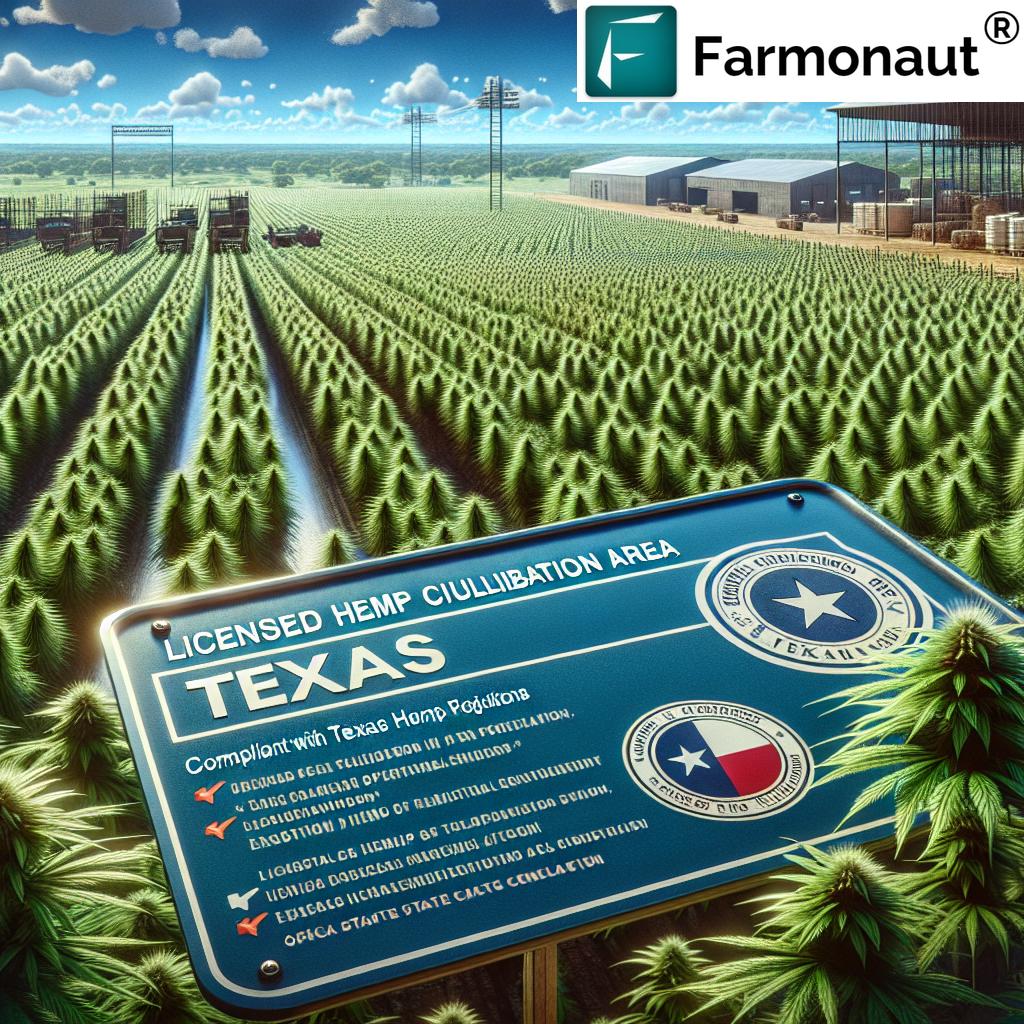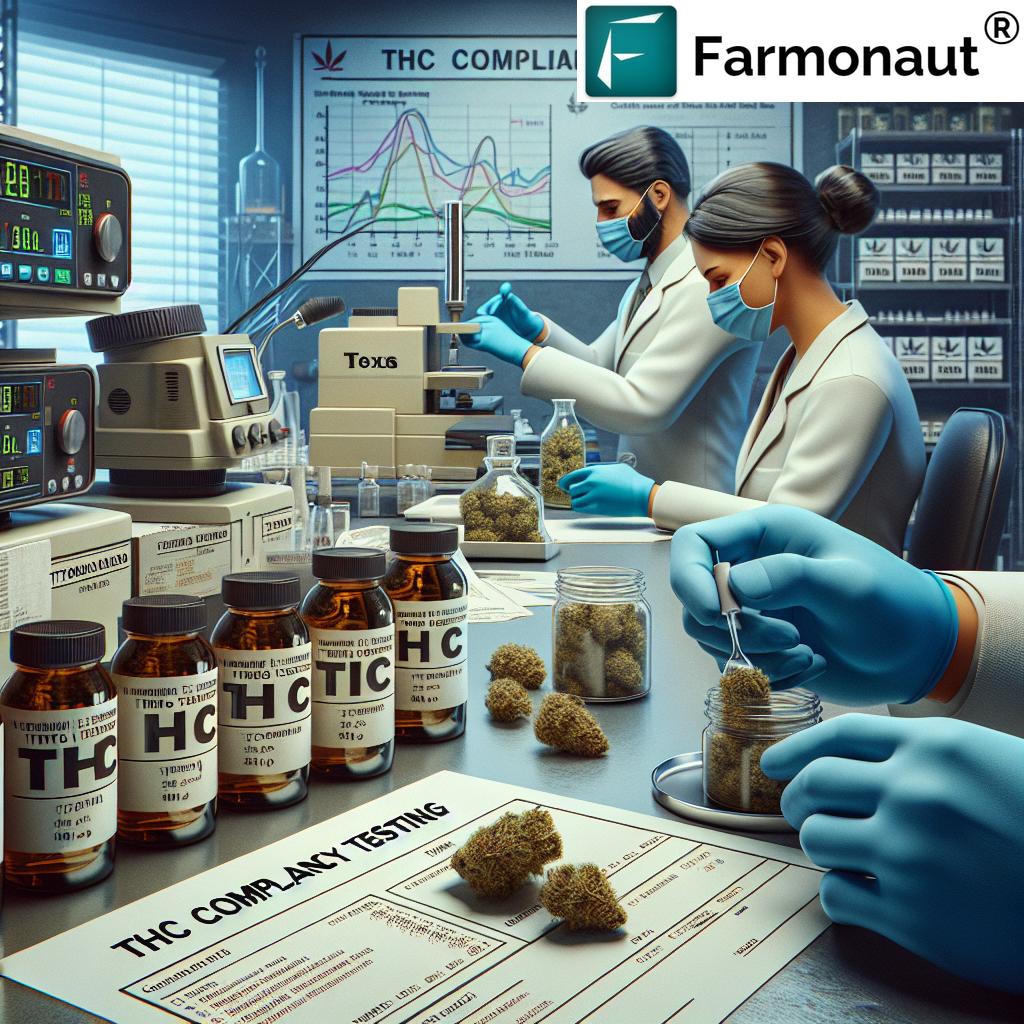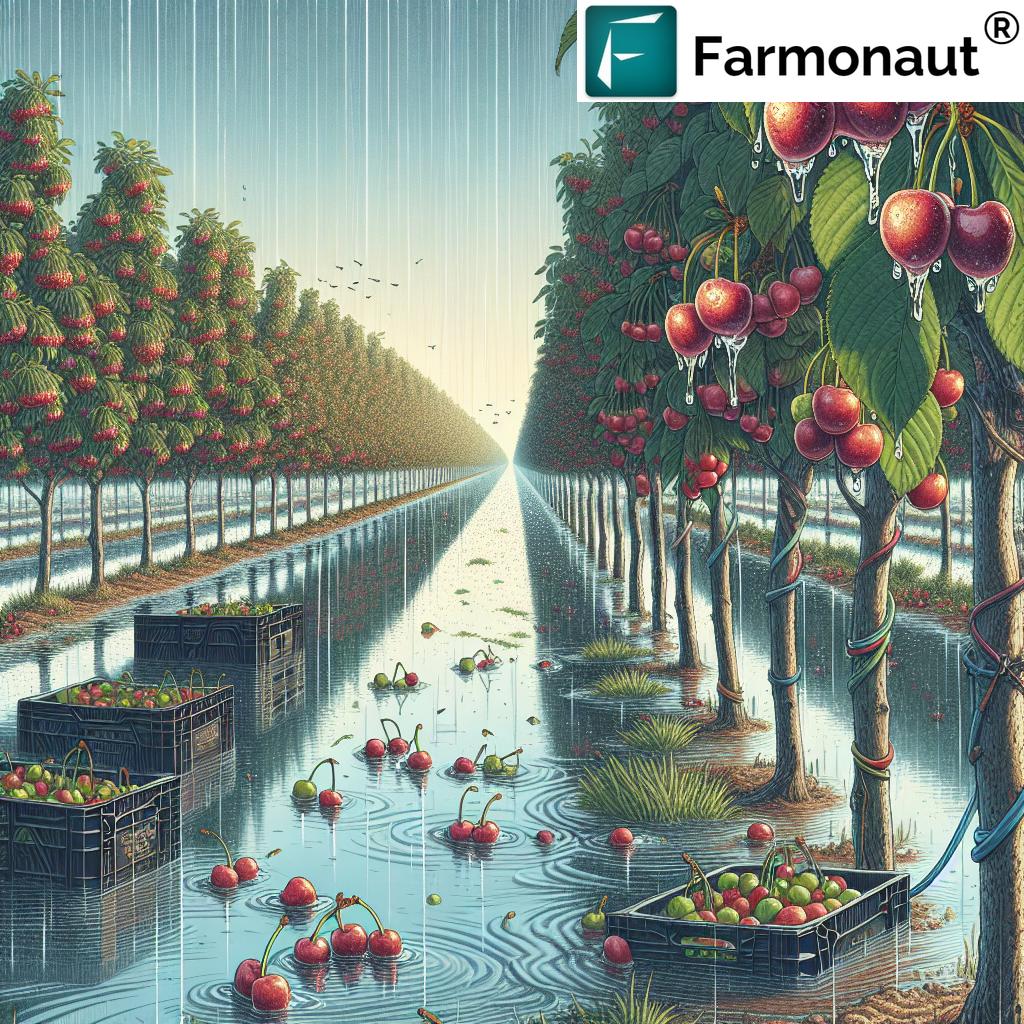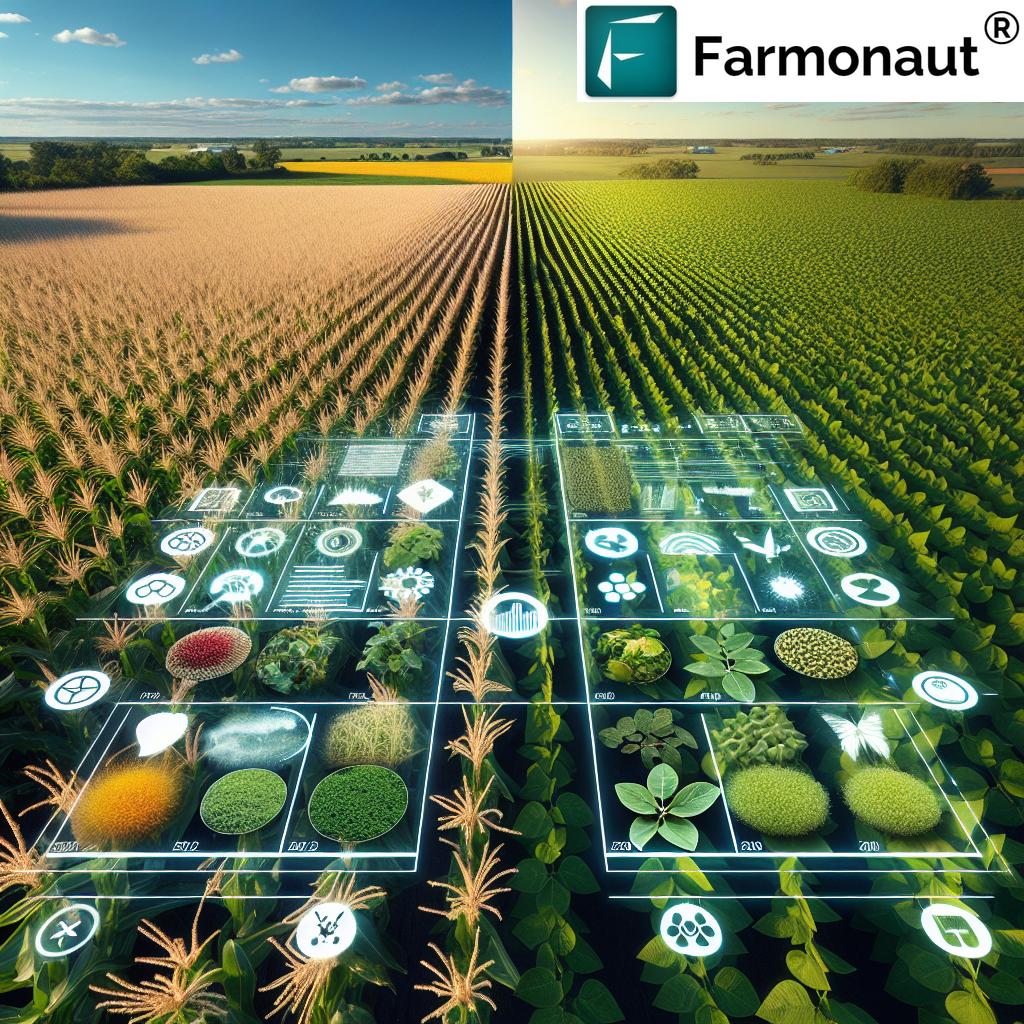Is It Legal to Grow Hemp in Texas? 7 Key Updates (2024-2025)
“Texas issued over 1,100 hemp cultivation licenses in 2023, reflecting rapid industry growth since legalization in 2019.”
Hemp Cultivation in Texas: Legalization at Federal and State Levels
Is it legal to grow hemp in Texas? The answer is yes, but the legality is governed by a robust mix of federal and state regulations, all evolving continuously. Let’s analyze how Texas hemp legalization has transformed the agricultural landscape since 2018, shaping the Texas hemp industry updates and defining opportunities for both new and established farmers.
The 2018 Farm Bill: Setting the Federal Framework
The pivotal change came with the 2018 Federal Farm Bill, which legalized hemp nationwide. The bill reclassified hemp, defining it as cannabis with less than 0.3% THC by dry weight. This was a clear departure from how cannabis was treated under older federal law, and it opened the door for states to develop their own regulatory programs specific to hemp cultivation and production. The federal government required states to submit plans for approval, aiming to harmonize regulations and ensure compliance with federal THC limits and safety standards.
Texas Response: HB 1325 and the Birth of Legal Hemp Production
Following this federal legalization, Texas enacted House Bill 1325 in June 2019. This major legislative move authorized the production, cultivation, manufacture, inspection, and retail sale of industrial hemp crops and products throughout the state (source).
- The Texas Department of Agriculture (TDA) received full authority to oversee the industrial hemp program.
- The TDA became responsible for licensing, regulation, and ensuring THC compliance— a critical point for legal hemp products in Texas.
- Producers are required to obtain licenses and comply with all regulations, testing, and reporting.
Texas hemp legalization thus mirrors and builds upon the basic federal structure, with extra licensing and compliance requirements for everyone in the value chain.
Defining Hemp: THC Limits and Regulatory Goals
Both federal and Texas state law define hemp as cannabis containing no more than 0.3% THC by dry weight. This threshold is regularly reviewed, and licensed producers must adhere closely to these hemp THC limits to avoid severe legal consequences, including crop destruction for exceeding the limit. The ongoing debate about THC content in hemp crops is at the center of new legislative and regulatory proposals, shaping the future of the Texas hemp sector.
Texas Hemp Licensing Requirements: Who Can Grow Hemp?
To legally cultivate hemp in Texas, you must secure a hemp producer license from the TDA. Understanding these Texas hemp licensing requirements is crucial for every prospective farmer or entrepreneur. Let’s outline the main eligibility factors and procedural steps to ensure sustainable compliance.
Who Is Eligible for a Hemp License in Texas?
- Applicants must be at least 18 years old at the time of application.
- No felony drug convictions in the past decade are permitted for licensees.
- Applicants are subject to background checks to verify eligibility.
Step-by-Step Licensing Process
- Apply for a hemp license via the Texas Department of Agriculture.
- Submit personal, business, and location details (including facility registration if processing is involved).
- Undergo background checks for all key individuals and business owners.
- Pay all applicable application, renewal, and inspection fees (fees may vary yearly).
- Obtain a Lot Crop Permit for each separate planting area within the operation.
- Register facilities independently if you maintain multiple operations under a single license.
Licenses and permits are mandatory for every producer, processor, and handler in the Texas hemp supply chain. Adherence to these strict regulatory protocols is vital to remain within the legal zone, both under state and federal law.
“THC content in Texas hemp must remain below 0.3%, with regular testing mandated by evolving state regulations.”
Regulatory Changes & Impacts Overview Table: Hemp Law in Texas
| Year/Update | Legislative Change/Regulation | Estimated THC Limit (%) | License Required | Application Fee (Est. $) | Economic/Educational Impact |
|---|---|---|---|---|---|
| 2018 | Federal Farm Bill legalizes hemp under 0.3% THC, states can develop programs | 0.3 | Yes (Varies: Federal/State) | State-dependent | New legal opportunities for farmers nationwide; education around hemp begins |
| June 2019 | HB 1325 signed: Authorizes production, manufacture, sale, inspection of hemp in Texas | 0.3 | Yes (TDA) | $100-500+ | Industrial hemp production Texas starts; rapid industry growth; influx of investment and job creation |
| May 2020 | New TDA rules on sale, purchase & labeling of hemp seeds; facility registration introduced | 0.3 | Yes (Seed sellers & handlers) | Varies (per activity) | Establishes traceability, quality assurance, and consumer protection for seed buyers |
| 2023 | More than 1,100 licenses issued for hemp cultivation; regular compliance testing enforced | 0.3 | Yes | $100-500 (avg.) | Sector attains $5.5B annual sales, $268M in tax revenue; hundreds of jobs created |
| May 2025 (Proposed) | Senate Bill 3: Proposed ban on hemp-derived THC products (Delta-8, etc.) | 0.3 (Delta-8 ban) | Yes (to grow/sell hemp, but proposed ban on certain retail products) | Potential increases for compliance | Potential industry contraction; widespread economic and employment uncertainty |
Hemp THC Limits, Testing, and Regulatory Framework
Hemp THC limits are at the heart of legal hemp products in Texas. Maintaining THC content below 0.3% dry weight is not just a guideline—it’s a strict requirement enforced by regular laboratory testing and crop inspections.
Key Rules for Compliance
- THC Content Enforcement: All hemp crops must be tested by a TDA-certified laboratory (source).
- Failure to comply results in legal action: If THC content exceeds 0.3%, crops are classified as marijuana and must be destroyed per state law.
- Regular mandatory testing: Each planting lot is tested before harvest, with THC levels measured on a dry weight basis.
- Documentation & Reporting: All test results and compliance records must be kept for TDA inspection, supporting traceability and transparency.
This focus on THC limits ensures the safety and legal status of all hemp products in Texas, protecting both the market and public health. Producers should watch for recent legislative developments that could modify testing protocols or reclassify certain types of THC products.
Industrial Hemp Production in Texas: Cultivation & Processing Rules
Industrial hemp production in Texas is a strictly regulated process, aiming to ensure product quality, traceability, and safety throughout the value chain. Below, we outline how farmers and agribusinesses can manage their operations while staying within legal boundaries.
Key Cultivation Regulations
- Seed Certification and Sourcing: Only TDA-registered and certified hemp seeds may be used for planting. After May 2020, the sale, handling or possession of seeds is tightly regulated (source).
- Lot Crop Permits: Each planting area (“lot”) requires a separate permit. Failure to permit or register the area may result in fines or the destruction of crops.
- Facility Registration: Processors and manufacturers must likewise register each processing facility with TDA, ensuring that legal hemp products in Texas are produced in approved locations.
- Adherence to TDA Regulatory Inspections: Facilities and farms are subject to random and routine inspections by state officials.
- Crop Destruction Protocols: If a crop fails THC compliance, the entire lot must be destroyed; failure to comply results in severe legal action.
These Texas hemp regulations build a tightly monitored system where each producer, processor, and seller is held to rigorous standards in the Texas hemp industry.
Processing and Sale Regulations
- Handling Licenses: Anyone handling, processing, or commercializing hemp must secure the relevant TDA licenses.
- Manufacturing and Distribution: Only industrial hemp—a crop containing less than 0.3% THC—can be processed and sold as raw or finished products.
- Retail sale and labelling: All hemp products must carry clear labels, documenting compliance, tracing the origin, and confirming testing results.
Staying compliant is crucial, as lapses—even inadvertent—may open up civil or criminal liability for farmers and businesses.
Related Tool:
If you’re seeking advanced resource management, explore our Fleet Management tool—designed for efficient monitoring of farm machinery, optimizing logistics, and reducing costs at every stage of industrial hemp production in Texas.
Sale of Hemp Seeds and Local Regulatory Provisions
Beyond crop cultivation, strict Texas hemp regulations affect the sale, possession, and certification of seeds within the state. These are among the most scrutinized aspects of the Texas hemp industry updates.
Hemp Seed Laws: What You Must Know
- Post-May 2020: Seeds cannot be sold or transferred without a proper TDA license (required for both commercial and personal use).
- Seed Certification: All hemp seeds sold and planted must meet strict certification standards for quality and labeling as established under both Texas and federal law.
- Purchasing: Only licensed producers and handlers may legally purchase or possess hemp seeds.
- Traceability: Documentation must demonstrate the legal origin and certified status of all seeds.
Local Government Preemption
- State Preemption: Local governments—or counties and cities—are forbidden from prohibiting or creating barriers to hemp cultivation, production, sale, or transportation in their jurisdictions (source).
- Uniform Law Application: This guarantees consistent regulations and fair business opportunities for hemp producers and sellers across Texas.
Uniformity in Texas hemp regulations reduces business uncertainty and helps nurture the hemp sector. It ensures that the impact of hemp legislation in Texas is truly state-wide.
For full supply chain transparency, we recommend Farmonaut’s Traceability Solution. It supports blockchain-based tracking for all crops (including hemp)—helping producers prove compliance and authenticity, and increasing consumer trust in legal hemp products Texas.
Recent Legislative Developments & Texas Hemp Industry Updates (2024-2025)
The Texas hemp industry is currently at a regulatory crossroads, driven by new policy debates about hemp-derived THC products and their place in the market. Here we analyze the most recent legislative developments and proposed changes that stakeholders must closely follow.
Senate Bill 3 and the Proposed Ban on Hemp-Derived THC Products
In May 2025, the Texas House passed Senate Bill 3, which proposes a ban on consumable hemp-derived THC products, including popular delta-8 THC edibles, tinctures, and vape cartridges (source).
- The proposed legislation is not yet enacted, but its progress signals potential restrictions that could reshape the Texas hemp products market.
- The bill is a response to concerns about consumer safety, youth access, and public health, as well as increased federal scrutiny about unregulated THC compounds.
- Stakeholders—farmers, manufacturers, retailers, and consumers—have expressed deep concern about the potential economic and employment impact.
If passed, the ban could exclude hundreds of currently available, legal hemp products Texas consumers rely on. This would mirror efforts in other states to address the proliferation of novel hemp-derived THC products and ensure market safety.
If you’re considering the environmental impact of your operations, our Carbon Footprinting Tool enables Texas hemp growers to measure and reduce their carbon footprint for greater sustainability and compliance—often required as part of emerging ESG policies in the agricultural sector.
Economic Impact of Hemp Legislation in Texas
Since the enactment of HB 1325 in 2019, the economic impact of hemp legislation in Texas has been substantial. The licensed hemp agricultural sector has become a multi-billion dollar industry, demonstrating both the promise and volatility inherent in fast-evolving regulatory frameworks.
Key Figures: Texas Hemp Industry 2023-2024
- $5.5 billion: Annual sales generated by the Texas hemp business sector (source).
- $268 million: Annual tax contribution from legal hemp activities.
- 1,100+ licenses issued in 2023 alone: Rapid growth in cultivation and downstream processing.
- Thousands of jobs created: Across farming, processing, retail, logistics, and compliance roles.
Potential Impact of a Hemp-Derived THC Ban: The proposed ban on hemp-derived THC products could:
- Eliminate significant revenue streams for farmers and independent small businesses.
- Lead to business closures and job losses throughout the supply chain.
- Restrict innovation and reduce farmer incentives to participate in the hemp sector.
The impact of hemp legislation in Texas is thus a double-edged sword—expansive when the climate is favorable, but precarious when new bans threaten established business models.
Managing operations at scale? Our Large Scale Farm Management Suite empowers agribusinesses to coordinate everything from planting to compliance, helping you stay ahead of new industry trends and regulatory developments.
Public Health, Consumer Safety, and Stakeholder Concerns
The proposed ban and ongoing regulatory changes are grounded in arguments about consumer protection and public health. Policy makers cite unregulated THC products and inconsistent product labeling as serious risks—especially for children and unknowing consumers (source).
Pro-Ban Arguments: Protecting Minors & Ensuring Consistency
- Lack of Regulation: Many consumable hemp-derived THC products evade standard safety and potency testing, creating risk of accidental overdose or harm.
- Appeal to Youth: Flavored vapes and edibles may be easily accessible and attractive to minors.
- Public Health: State officials emphasize the importance of rigorous oversight for all hemp food and supplement products sold in Texas.
Anti-Ban Arguments: Economic & Access Concerns
- Economic Fallout: Stakeholders argue that a ban would decimate an active, regulated legal market—sending consumers elsewhere or into black markets.
- Access and Innovation: Many rely on alternative cannabinoids for medical or wellness reasons; a ban could restrict availability and progress.
At stake is not just health and safety, but the entire social and economic fabric of the Texas hemp sector.
Did you know? Farmonaut helps farmers secure crop loans/insurance, offering satellite-based crop health verification—this is especially useful for hemp farmers needing to prove compliance or recover losses due to regulatory crop destruction.
How Stakeholders Navigate Evolving Hemp Regulations in Texas
In an environment where regulations, laws, and licensing requirements change regularly, producers, processors, retailers, and investors must remain vigilant—and agile. The primary task is always to ensure ongoing compliance with both established rules and emergent policies.
Strategies for Navigating the Texas Hemp Legal Landscape
- Keep Licenses Updated: Stay ahead of renewal deadlines; monitor for new licensing requirements and regulatory updates.
- Rigorous Record-Keeping: Detailed documentation of test results, planting records, seed purchases, and sales is crucial for compliance and defense.
- Stay Informed: Join official agricultural mailing lists, industry organizations, and advocacy groups for the latest on pending legislation such as the ban on hemp-derived THC products.
- Leverage Digital Tools: Use advanced management platforms for real-time crop monitoring, resource optimization, and regulatory updates.
Success in the Texas hemp industry requires a commitment to education, adaptability, and smart technology adoption.
How Farmonaut Helps Texas Hemp Farmers & Agribusinesses
As Texas hemp regulations become more complex, technology is critical for navigating compliance, maximizing efficiency, and boosting yields. At Farmonaut, we provide satellite-based, AI-powered farm management solutions to support farmers, agribusinesses, and institutions across Texas.
Our Solutions for the Texas Hemp Sector
- Real-Time Crop Monitoring: Our satellite imagery platform lets you track crop health, soil moisture, and vegetation indices (NDVI) from planting to harvest—enabling early detection of stress, pest outbreaks, or compliance risks.
- Precision Agriculture: Our tools help Texas hemp producers optimize irrigation and fertilizer input, supporting sustainable increases in yield and profitability.
- Blockchain Traceability: Tracking every step from seed to sale is easier with blockchain-powered tools—ideal for proof of compliance with TDA inspections or consumer transparency requirements.
- Regulatory Record-keeping: Store and organize all compliance data, ready for inspection at any time.
- Fleet and Resource Management: Monitor and optimize equipment usage across multiple planting sites or lots, reducing waste and maximizing uptime.
- Carbon Footprinting: Quantify and manage emissions to prepare for new environmental compliance demands in the Texas hemp industry.
Our mission is to empower the Texas hemp sector—enabling legal, efficient, and sustainable agricultural practices in the face of ever-evolving regulations and competitive pressures.
For enterprise solutions or integration needs, our secure Farmonaut API and comprehensive API Developer Docs are available for seamless data-driven integration.
FAQ: Texas Hemp Regulations and Legalization
Is it legal to grow hemp in Texas?
Yes, it is legal, provided you comply with Texas Department of Agriculture (TDA) licensing, THC limits (below 0.3%), and all state and federal regulations.
What are Texas hemp THC limits?
Legal hemp in Texas is defined as cannabis containing no more than 0.3% THC by dry weight. Regular testing is required to ensure compliance.
Do I need a license to process or handle hemp-derived products?
Yes. All processors and handlers must obtain TDA licenses, register facilities, and comply with ongoing testing and reporting obligations.
Are there local restrictions on hemp cultivation in Texas?
No. Local governments cannot ban or restrict legal hemp cultivation, handling, or sale thanks to state-level preemption laws.
What might change if the proposed ban on hemp-derived THC products passes?
Many existing legal hemp products, including those containing delta-8 THC, could be removed from retail shelves, impacting growers, processors, retailers and consumers.
Conclusion: The Future of Hemp Cultivation in Texas
Hemp cultivation in Texas is grounded in a progressive, but constantly evolving, framework of state and federal law. Since the 2018 Farm Bill and the 2019 enactment of HB 1325, the Texas hemp sector has exploded with opportunity, but also faces new complexities around compliance, testing, licensing, and product bans.
For all stakeholders—from family farmers to large industrial producers—the challenge is to navigate these changes efficiently, ensuring legal compliance and maximizing economic opportunity. Texas remains a leader in hemp cultivation, but every participant must stay proactive, adaptable, and well-informed as recent legislative developments and proposed regulations (like Senate Bill 3) continue to shape the landscape.
At Farmonaut, we help the Texas hemp industry thrive with affordable technologies for crop monitoring, regulatory record-keeping, and digital supply chain solutions. Whether you’re planting your first hemp crop or scaling up operations, our mission is to make every step easier, smarter, and legally sound.
Stay tuned for the latest Texas hemp industry updates—and remember, in this dynamic market, knowledge and technology are your best allies.


















